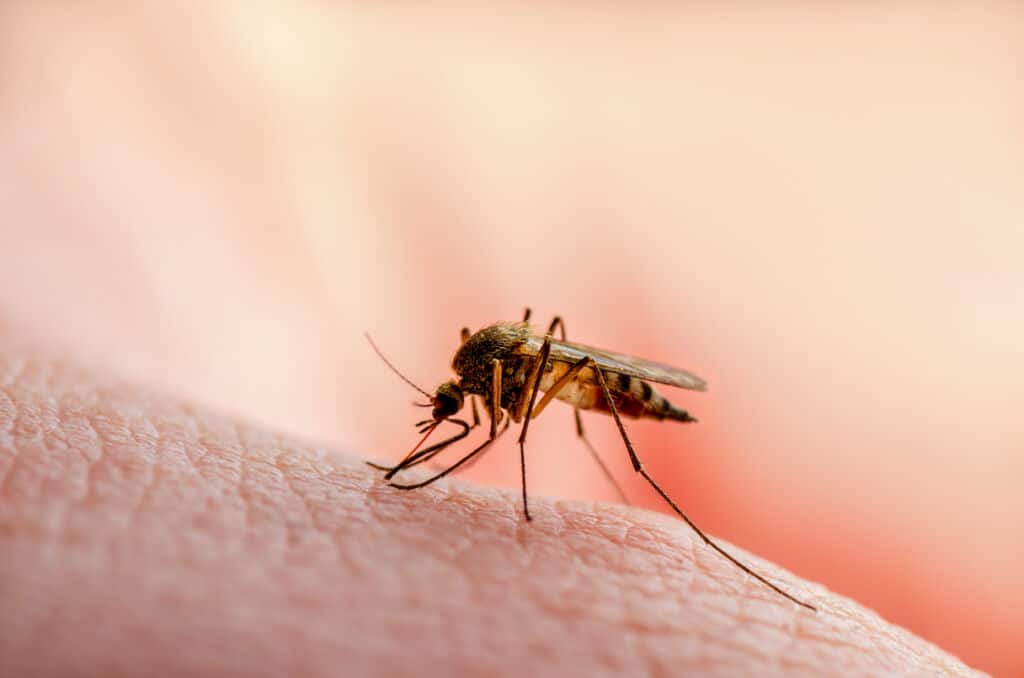Newsletter Signup - Under Article / In Page
"*" indicates required fields
Ghana has granted full national licensure for the University of Oxford’s R21/Matrix-M malaria vaccine, marking the first regulatory clearance for the vaccine for use in any country.
Developed by the University of Oxford, leveraging Novavax’s adjuvant technology, and manufactured and scaled up by the Serum Institute of India PvT Ltd (SIIPL), the vaccine has been approved for use in children aged five to 36 months, which is the age group known to be at the highest risk of dying from malaria – a disease caused by a parasite spread by Anopheles mosquitoes.
R21/Matrix-M is a low-dose vaccine that can be manufactured at a mass scale and modest cost, meaning as many as hundreds of doses can be supplied to African countries that are heavily affected by malaria.
“This marks a culmination of 30 years of malaria vaccine research at Oxford with the design and provision of a high efficacy vaccine that can be supplied at adequate scale to the countries who need it most,” said Professor Adrian Hill, chief investigator of the R21/Matrix-M programme, and director of the University of Oxford’s Jenner Institute at the Nuffield Department of Medicine.
“I congratulate our superb clinical trial partners in Africa who have generated the dataset supporting the safety and efficacy of the vaccine in children. As with the Oxford-AstraZeneca COVID-19 vaccine, our partnership with the Serum Institute of India has been key to successful very large-scale manufacturing and rapid development.”
The vaccine demonstrated high levels of efficacy and safety in phase 2 trials, including amongst children who received a booster dose at one year following a primary three-dose regimen. Recent data from the large phase 3 trial, which has not yet been made public, also showed high levels of efficacy and a reassuring safety profile.
About the R21/Matrix-M malaria vaccine
The R21/Matrix-M malaria vaccine contains Novavax’s (Nasdaq: NVAX) Matrix-M, a saponin-based adjuvant that enhances the immune response, which makes it more potent and more durable. The adjuvant stimulates the entry of antigen-presenting cells at the injection site and enhances antigen presentation in local lymph nodes.
John C. Jacobs, president and chief executive officer of Novavax, said: “We’re thrilled that Novavax’s Matrix-M™ adjuvant has contributed to the success of this promising and much-needed malaria vaccine. It is our intention to unlock the potential of our adjuvant, both in the near term and over time, to continue to improve public health.”
The same technology was also used successfully in Novavax’s COVID-19 vaccine, and is a key component of other development-stage vaccines.
Partnership with SIIPL
SIIPL, an Indian biotechnology company and the world’s largest manufacturer of vaccines, is the manufacturing and commercialization license holder for the R21/Matrix-M vaccine, and has provided the vaccine and sponsored phase 3 licensure clinical trials.
It has already established potential manufacturing capacities of more than 200 million doses of the vaccine annually.
“The licensure of the R21/Matrix-M™ Malaria Vaccine for use in Ghana is a significant milestone in our efforts to combat malaria around the world. We remain steadfast in our commitment to scaling up production of the vaccine to meet the needs of countries with high malaria burden and to support global efforts towards saving lives,” said Adar Poonawalla, CEO of SIIPL.
Africa most affected region by malaria
According to the latest World malaria report by the World Health Organization (WHO), there were 247 million cases of malaria in 2021 and 619,000 deaths, with Africa carrying a disproportionately high share of the global malaria burden, accounting for around 95% of all malaria cases and 96% of deaths.
The report showed specifically that Nigeria, the Democratic Republic of Congo, United Republic of Tanzania, and Niger accounted for just over half of all malaria deaths worldwide.






